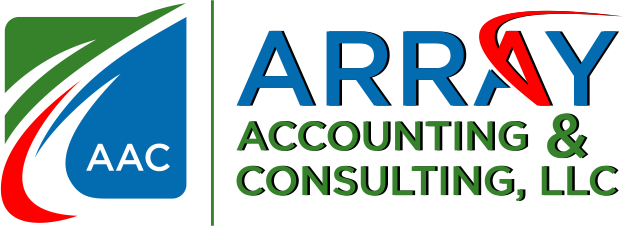Preparing for Your Nonprofit Audit: What CFOs & Controllers Need to Know
- Array Accounting & Consulting

- Jan 31
- 3 min read
Updated: Feb 9

For nonprofit CFOs and controllers, annual audits are a necessary part of maintaining financial transparency, compliance, and donor trust. With over 75% of donors stating that financial accountability influences their giving decisions (Giving USA, 2024), ensuring a smooth audit process is critical. A well-prepared nonprofit audit not only meets legal requirements but also strengthens credibility with stakeholders, funders, and the community.
This guide will walk you through key steps to prepare for a nonprofit audit, common challenges, and best practices to ensure compliance and accuracy.
1. Understand When an Audit Is Required
Not every nonprofit is required to undergo an independent audit, but many organizations do so to comply with regulations, grant requirements, or internal governance policies. Nonprofit audit requirements vary by state and funding level, but common triggers include:
Federal funding of $750,000+ in a fiscal year, requiring a Single Audit under the Uniform Guidance (IRS, 2024).
State laws mandating audits based on revenue thresholds. For example, in California, nonprofits exceeding $2 million in annual revenue must conduct an audit (National Council of Nonprofits, 2024).
Grant agreements requiring an audit as a condition for funding. Many major foundations and government agencies expect audited financials.
Board of directors or internal governance policies that require an annual audit.
2. Organize and Review Financial Records
CFOs and controllers should start preparing for an audit well in advance by ensuring all financial documents are accurate and up to date. Key documents to review and organize include:
Financial statements (Statement of Financial Position, Statement of Activities, Statement of Cash Flows).
General ledger and trial balance reports for the fiscal year.
Bank reconciliations and account statements for all accounts.
Grant documentation outlining restrictions, funding sources, and spending reports.
Payroll records including tax filings, W-2s, and 1099s.
Expense reports and receipts to substantiate costs.
Board meeting minutes related to operations, financial decisions and approvals.
3. Conduct an Internal Review Before the Audit
A pre-audit review can help identify potential issues before the auditors arrive. CFOs and controllers should:
Reconcile all bank, credit card, and investment accounts.
Review revenue recognition policies and ensure compliance with GAAP (Generally Accepted Accounting Principles) for nonprofits.
Verify that restricted and unrestricted funds are properly categorized and reconciled.
Check for unusual transactions, missing documentation, or accounting errors that need to be addressed.
Ensure all compliance filings (state, payroll tax filings) are up to date.
4. Prepare for Auditor Requests and Fieldwork
Once the audit is scheduled, auditors will provide a Prepared by Client (PBC) list outlining required documentation. CFOs and controllers can streamline the process by:
Assigning audit responsibilities to key staff members.
Setting up a digital file system with all requested documents easily accessible.
Ensuring accounting software and financial systems are organized and up to date.
Being ready to provide explanations for significant variances in financial statements.
Use project management software to help make the audit as seamless as possible.
5. Address Common Audit Challenges
Many nonprofits face audit challenges that can lead to delays or findings that require correction. Common issues include:
Inadequate documentation for grants or restricted funds – Nonprofits must track and report how grant funds are used.
Noncompliance with donor restrictions – Ensure that designated funds are allocated properly.
Weak internal controls – Auditors will review policies on financial oversight, fraud prevention, and separation of duties.
Unrecorded liabilities or accrued expenses – Make sure all financial obligations are properly documented.
6. Implement Best Practices for a Smooth Audit
To ensure a successful audit and minimize stress, nonprofit CFOs should:
Maintain a year-round audit-ready mindset by keeping financial records organized.
Hold regular financial check-ins with key stakeholders, including board members and program managers.
Invest in nonprofit accounting software that integrates grant tracking, donor management, and reporting.
Educate staff on financial compliance to avoid unintentional misstatements or policy violations.
Engage with auditors proactively to clarify expectations and avoid last-minute surprises.
Final Thoughts: Turning the Audit Into an Opportunity
A nonprofit audit is more than just a compliance requirement—it is an opportunity to strengthen financial transparency, improve internal processes, and build donor trust. By taking a proactive approach to audit preparation, CFOs and controllers can position their organizations for long-term success.
Need Expert Support for Your Nonprofit Audit?
At Array Accounting & Consulting, we help nonprofit CFOs and controllers navigate audits with confidence. Our team provides expert guidance on compliance, financial reporting, and internal controls. Contact us today to ensure your next audit is seamless and stress-free.





Comments